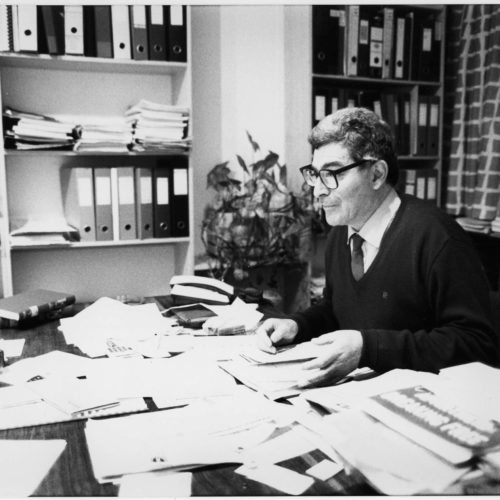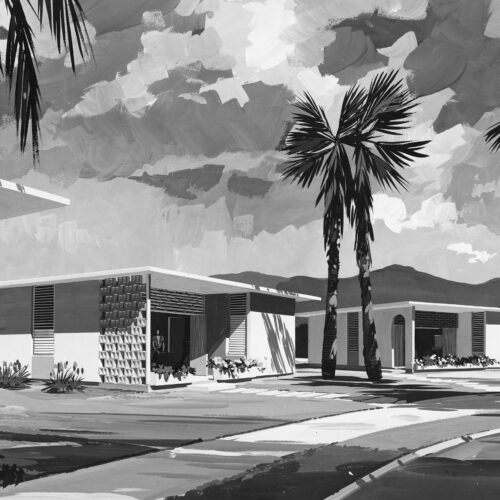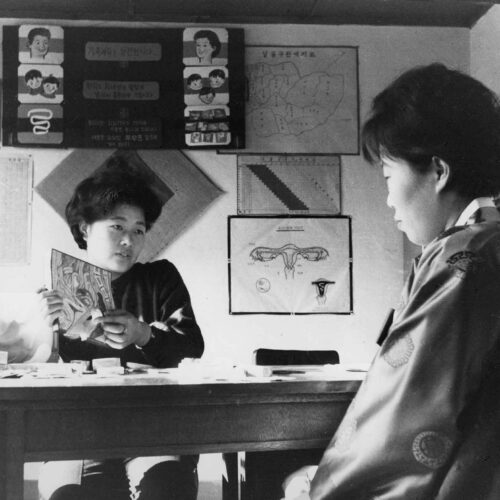We are pleased to offer this snapshot of some recent archival research at RAC. The New Research series presents newly published reports submitted by RAC travel stipends recipients who have pursued their studies in our reading room. In this edition, reports cite records from the Rockefeller Foundation, as well as the papers of Frederick T. Gates, John D. Rockefeller, Sr., and David K. Lelewer. We encourage you to read through these reports from our reading room visitors and discover a bit about the wide range of topics covered and research approaches used.
“The Rockefeller Foundation’s Rural Health Program and the Oil Nationalization Crisis in Iran, 1949-1951” by Kelly Shannon
Kelly Shannon’s research report looks at a little-known episode in Rockefeller Foundation (RF) history – the foundation had an office in Tehran in the years immediately after World War II. In her report, “The Rockefeller Foundation’s Rural Health Program and the Oil Nationalization Crisis in Iran, 1949-1951,” she explores the RF archival records regarding its plans to conduct a rural health project there. This program was viewed favorably by the Shah and by government officials, as they sought to modernize Iran’s healthcare system. However, the plan ultimately was ill-timed. The 1951 nationalization of the oil industry, a crisis with both domestic and international implications, overwhelmed these efforts. Though these political developments were not aimed at the RF’s presence in Iran, the foundation did not see a way to continue when the government’s focus was elsewhere. As Dr. Shannon observes, this short-lived engagement between a major American philanthropy and Iran was a positive moment in an often-rocky relationship between the two countries.
Kelly J. Shannon is associate professor of history at Florida Atlantic University (FAU). Since July 2020, she has also been the director of the university’s Peace, Justice, and Human Rights Initiative. Her research focuses on US relations with the Islamic world, US relations with Iran, Muslim women’s human rights, transnational history, and human rights and US foreign policy. She was a 2020 RAC research stipend recipient.
“Frederick Gates and Philanthropic Timeliness” by Benjamin Soskis
In “Frederick Gates and Philanthropic Timeliness,” Benjamin Soskis explores Gates’s thinking on a fundamental question confronting modern philanthropy: how best to time and allocate funding so that it has the most overall beneficial impact. As John D. Rockefeller, Sr.’s trusted advisor from the earliest days of his giving, Frederick T. Gates’s view of these issues helped shape the framework under which then-new Rockefeller philanthropies such as the General Education Board and the Rockefeller Foundation operated. Analyzing Gates’s correspondence and memos, appearing both in his personal papers and various other RAC collections, Dr. Soskis notes that Gates drew many of his ideas from his Baptist faith and charity experiences. Yet, as Soskis also points out, Gates’s thinking on questions of endowments, temporal responsibilities, and the notion of foundation perpetuity evolved over time.
Benjamin Soskis is a senior research associate in the Center on Nonprofits and Philanthropy at the Urban Institute, with a particular interest in the ways in which historical inquiry can inform contemporary philanthropic practice. He is also the coeditor of HistPhil, a web publication devoted to the history of the nonprofit and philanthropic sectors.
“Graciela Olivarez: From Mexican American Civil Rights and Antipoverty Activism to the Presidential Commission on Population Growth and the American Future” by Robert Bauman
Graciela Olivarez was a Mexican American civil rights activist, who later became the first Latina to lead a federal agency when, in 1977, President Jimmy Carter appointed her head of the Community Service Administration. Robert Bauman’s study of her life and career brought him to RAC to look at records related to earlier work she had done in a presidential administration. In 1970, Graciela Olivarez was selected by President Nixon to be a chair on his Presidential Commission on Population Growth and the American Future. In “Graciela Olivarez: From Mexican American Civil Rights and Antipoverty Activism to the Presidential Commission on Population Growth and the American Future,” Prof. Bauman provides details about the RAC archival material he found in the papers of a John D. Rockefeller, 3rd associate, David Lelewer. Bauman describes how these records allowed him to successfully fill in a number of gaps about why Olivarez was selected for the Commission and provided documentation of her positions on the issues which the Commission sought to address. Graciela Olivarez’s anti-poverty activism, her support for Mexican American rights, and her Catholic faith all shaped her views on population issues.
Robert Bauman is professor of history and academic director of arts and sciences at Washington State University Tri-Cities. His teaching interests are in 20th Century US social policy, religion, and race in the American West. He was a 2023 RAC research stipend recipient.
“Wheat and Meat: The Rockefeller Foundation and the Chilean Agricultural Program” by Joshua Frens-String
Joshua Frens-String’s research report, “Wheat and Meat: The Rockefeller Foundation and the Chilean Agricultural Program,” traces the development of the Chilean Agricultural Program funded by the Rockefeller Foundation (RF) during the 1950s and 1960s. It some ways, it was a “spin-off” of the 1940s Mexican Agricultural Program that marked the beginning of the RF’s intense engagement with the concept of modernizing agricultural production in then-called “developing” regions of the world. Yet Frens-String notes that the RF’s Chilean program differed from the earlier endeavors in a number of ways. While it did build on past experiences, it also contended with farming in uniquely Chilean long- and short-season climates, as well as a different level of local expertise. Reflecting on his exploration of the RF archives, Dr. Frens-String emphasizes that current research on the Green Revolution differs from earlier studies that looked at the enterprise “from the top down.” Instead, he notes that “the multi-directional and often reciprocal flows of agrarian knowledge that moved both between the Global South and Global North and within the Global South itself” were clearly evident in the Chilean program.
Joshua Frens-String is a historian specializing in modern Latin American history at the University of Texas at Austin. His research and teaching interests include revolution in modern Latin America, popular politics, labor history, global agricultural history, food politics, and US-Latin American relations. He was a 2020 RAC research stipend recipient.
About the RAC Research Stipend Program
The Rockefeller Archive Center offers a competitive research stipend program that provides individuals up to $5,000 for reimbursement of travel and accommodation expenses. Learn more on our Research Stipend page.



